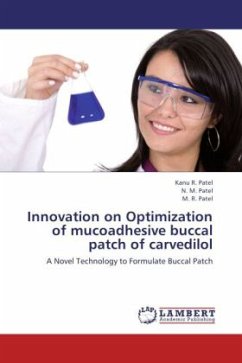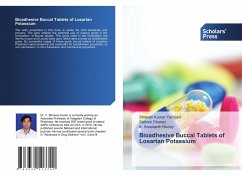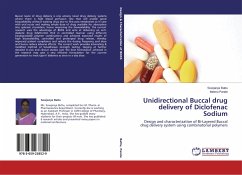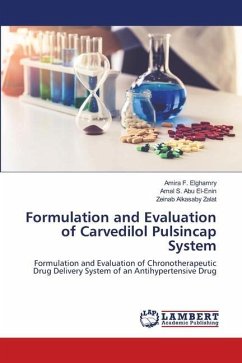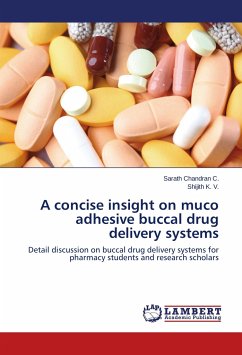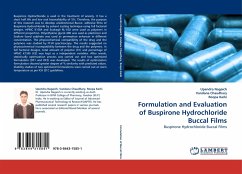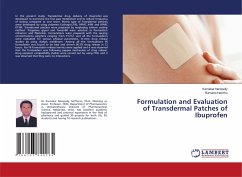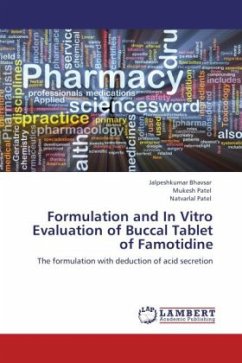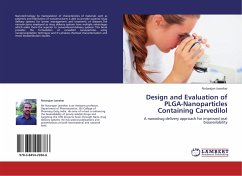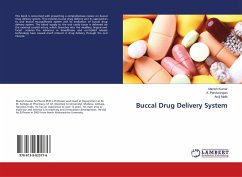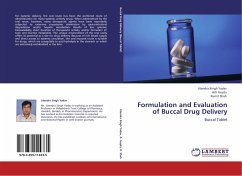
Formulation and Evaluation of Buccal Drug Delivery
Buccal Tablet
Versandkostenfrei!
Versandfertig in 6-10 Tagen
32,99 €
inkl. MwSt.

PAYBACK Punkte
16 °P sammeln!
For systemic delivery, the oral route has been the preferred route of administration for many systemic actively drugs. When administered by the oral route, however, many therapeutic agents have been reportedly subjected to extensive presystemic elimination by gastrointestinal degradation and/or hepatic metabolism. Results of low systemic bioavailability, short duration of therapeutic activity, and/or formation of toxic and inactive metabolite. The unique environment of the oral cavity offers its potential as a site for drug delivery. Because of rich blood supply and direct access to systemic c...
For systemic delivery, the oral route has been the preferred route of administration for many systemic actively drugs. When administered by the oral route, however, many therapeutic agents have been reportedly subjected to extensive presystemic elimination by gastrointestinal degradation and/or hepatic metabolism. Results of low systemic bioavailability, short duration of therapeutic activity, and/or formation of toxic and inactive metabolite. The unique environment of the oral cavity offers its potential as a site for drug delivery. Because of rich blood supply and direct access to systemic circulation, the oral mucosal route is suitable for drugs, which are susceptible to acid hydrolysis in the stomach or which are extensively metabolized in the liver.



